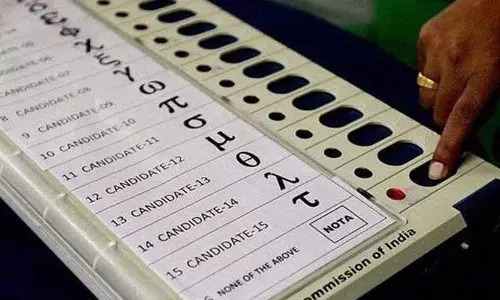
Govt to table Banking Laws Bill to privatise two Public Sector Banks
text_fieldsNew Delhi: The Union government is going to introduce the Banking Laws (Amendment) Bill 2021 in the Winter Session of Parliament, aiming to privatise two public sector banks, NDTV reported. The proposed legislation is one among 26 bills to be tabled in this session which is to commence from November 29.
According to official sources, to privatise two public sector banks, amendments are needed in Banking Companies (Acquisition and Transfer of Undertakings) Acts, 1970 and 1980. Also, incidental amendments are required in the Banking Regulation Act. 1949.
While presenting the Union Budget 2021-22, Finance Minister Nirmala Sitharaman had announced the privatisation of the two banks as the government's disinvestment drive to raise Rs 1.75 lakh crore in the current fiscal year.
Another major bill scheduled to be introduced in the session is Pension Fund Regulatory and Development Authority (Amendment) Bill, 2021 (PFRDA). The purpose of this bill is to enable the separation of the National Pension System Trust from the pension Fund Regulatory and Development Authority. The bill is supposed to fulfil the 2020 budget announcement of ensuring universal pension coverage and strengthening PFRDA.
Sources said that with the amendment of the PFRDA Act, functions and duties of the National Pension System (NPS) Trust might come under a charitable Trust or the Companies Act. NPS is currently laid down under PFDRA NPS Regulations 2015.
The amendment is aimed to keep NPS Trust separate from the pension regulator and managed by a competent board of 15 members. A majority of the board members are likely to be from the government, including states, as they are the biggest contributor to the corpus.
























